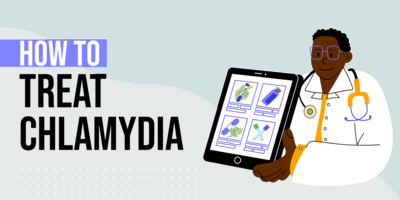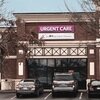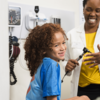
How to Treat Chlamydia
Chlamydia is a bacterial infection that is spread by sexual contact, according to the CDC. It is one of the most...
Read moreHelp patients book appointments with you on Solv. It's free!
20 instant-book locations









No more surprise bills. Solv is committed to making getting healthcare as easy as buying groceries at the store, including knowing the price of care upfront.

No more surprise bills. Solv is committed to making getting healthcare as easy as buying groceries at the store, including knowing the price of care upfront.

No more surprise bills. Solv is committed to making getting healthcare as easy as buying groceries at the store, including knowing the price of care upfront.

No more surprise bills. Solv is committed to making getting healthcare as easy as buying groceries at the store, including knowing the price of care upfront.

No more surprise bills. Solv is committed to making getting healthcare as easy as buying groceries at the store, including knowing the price of care upfront.

No more surprise bills. Solv is committed to making getting healthcare as easy as buying groceries at the store, including knowing the price of care upfront.

Help patients book appointments with you on Solv. It's free!
Chlamydia is a common sexually transmitted infection (STI) that can affect both men and women. The Centers for Disease Control and Prevention (CDC) recommends that sexually active women under the age of 25, as well as older women with risk factors such as new or multiple sex partners, should get tested for chlamydia annually. Men who have sex with men should also get tested regularly.
Chlamydia often has no symptoms, but if left untreated, it can lead to serious health problems, including infertility in women. Testing is the only sure way to know if you have the infection. According to the CDC, early detection and treatment can prevent these complications.
Urgent care centers and walk-in clinics in Nashville, such as Ascension Saint Thomas Urgent Care, offer chlamydia testing. These facilities often have shorter wait times than traditional doctor's offices and are a good option for those who need to get tested quickly. You can book same-day and next-day appointments at these centers through Solv.
Your primary care provider can also test for chlamydia. If you have a regular doctor in Nashville, this may be the most convenient option for you.
There are also free STD testing centers and community health centers in Nashville that offer chlamydia testing. These can be a good option for those without insurance or who cannot afford to pay for testing.
At-home testing kits for chlamydia are also available. These kits can be ordered online, used at home, and then sent back to a lab for testing. Results are usually available within a few days.
Chlamydia is prevalent in Nashville and the surrounding Davidson County. According to the CDC, the rate of chlamydia in Davidson County is higher than the national average. The infection is particularly common among young adults and adolescents.
Risk factors for chlamydia in Nashville include being sexually active, having multiple sexual partners, not using condoms consistently, and being under the age of 25.
In addition to chlamydia, other common STDs in Nashville include gonorrhea, syphilis, and HIV. The rates of these infections are also higher than the national average, according to the CDC. It's important to get tested for these infections as well, as they can also lead to serious health problems if left untreated.
Remember, there are 227 locations in and around Nashville where you can get tested for STDs. These include Moore Life Urgent Care in Gallatin and Internal Medicine Associates in Smyrna. You can book appointments at these locations through Solv's website or mobile app.
Solv has strict sourcing guidelines and relies on peer-reviewed studies, academic research institutions, and medical associations. We avoid using tertiary references.
A chlamydia test is an STD test that can tell you if you have chlamydia or not. According to A chlamydia test is used to determine the presence of chlamydia bacteria in the body, according to the National Institutes of Health. It can be used to confirm whether you have chlamydia even if you don't have any symptoms. According to the National Institutes of Health, chlamydia symptoms include pain when peeing and frequent urination. It can cause abnormal vaginal bleeding in women, and it can cause discharge from the penis in men. the NIH, it can be done as a urine test or a swab test, albeit the swab test is normally only done on women. Many healthcare practitioners that provide lab test services can deliver a chlamydia test.
A chlamydia test is used to identify whether chlamydia bacteria is present in the body, according to the National Institutes of Health. It can be used to determine whether you have chlamydia even if you don't have any symptoms. According to the National Institutes of Health, chlamydia symptoms include pain when peeing and frequent urination. It can cause abnormal vaginal bleeding in women, and it can cause penile discharge in men.
A chlamydia test can reveal whether or not you have the STD and help you avoid infecting others. For sexually active women under the age of 25, males who have intercourse with men, HIV patients, and pregnant women under the age of 25, the National Institutes of Health recommends yearly chlamydia tests. This STD test is particularly recommended for women over the age of 25 who have had multiple sexual partners and whose partners have used condoms incorrectly or inconsistently.
According to the National Institutes of Health, the chlamydia test provider will ask you to urinate into a sterile collecting cup during the urine test. Lab technicians examine your urine sample for the presence of chlamydia bugs. According to the National Institutes of Health, a healthcare provider will use a swab or brush to collect a sample of cells during a pelvic exam. After that, the sample is transported to a laboratory for analysis.
According to the National Institutes of Health, lab test providers may advise women getting a chlamydia test to avoid using vaginal douches or lotions for at least 24 hours prior to the test. It's also possible that men and women will be asked to stop taking antibiotics for at least 24 hours before the STD test.
Symptoms of chlamydia usually show one to three weeks after infection, according to the University of Wisconsin. However, 75 percent of women and 50 percent of men with chlamydia exhibit no symptoms, according to the institution. The only way to find out whether you have chlamydia is to go to an STD testing center and take a chlamydia test. Symptoms of chlamydia usually show one to three weeks after infection, according to the University of Wisconsin. However, 75 percent of women and 50 percent of men with chlamydia exhibit no symptoms, according to the institution. The only way to find out whether you have chlamydia is to go to an STD testing center and take a chlamydia test.
You shouldn't test positive for chlamydia after you've done therapy. According to the University of Rochester Medical Center, chlamydia can be successfully treated with azithromycin or doxycycline. According to the University of Rochester Medical Center, people with lymphogranuloma venereum, a kind of chlamydia, may need 21 days of treatment. Furthermore, the institution recommends that you refrain from all sexual activity for at least seven days or until your chlamydia treatment is finished.
A chlamydia test is available at many healthcare facilities that perform lab tests and STD testing services, such as hospitals, urgent care centers, and walk-in clinics. Solv is one of the simplest and most convenient ways to locate chlamydia test providers in your area. Type "chlamydia test" or "STD testing" into the search field on Solv's website, then enter your location to find top-rated providers and arrange an appointment online.
Annual Wellness Exam in Nashville
Chickenpox Vaccine in Nashville
DOT Exam in Nashville
Ear Wax Removal in Nashville
Eye Exam in Nashville
Flu Shot in Nashville
Hepatitis Vaccine in Nashville
Measles Vaccine (MMR) in Nashville
Pap Smear in Nashville
Physical Exam in Nashville
Shingles Vaccine in Nashville
Sinus Infection Treatment in Nashville
Sports Physicals in Nashville
Tetanus Shot in Nashville
Typhoid Vaccine in Nashville
Well-Woman Exam in Nashville
Yellow Fever Vaccine in Nashville
A1C Test in Nashville
CMP Test in Nashville
Chlamydia Test in Nashville
Diabetes Test in Nashville
Gonorrhea test in Nashville
H Pylori Test in Nashville
HIV Test in Nashville
Hepatitis test in Nashville
Herpes Test in Nashville
Mono Test in Nashville
Pregnancy Test in Nashville
STD Testing in Nashville
Strep Test in Nashville
Syphilis test in Nashville
TB Test in Nashville
Thyroid Test in Nashville
Trichomonas Test in Nashville
Vitamin D Test in Nashville
Tips, advice, news—your resource to stay healthy and safe while improving your experience with healthcare providers when you need them.